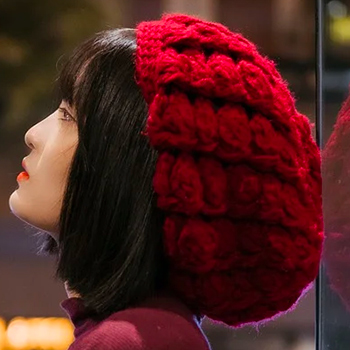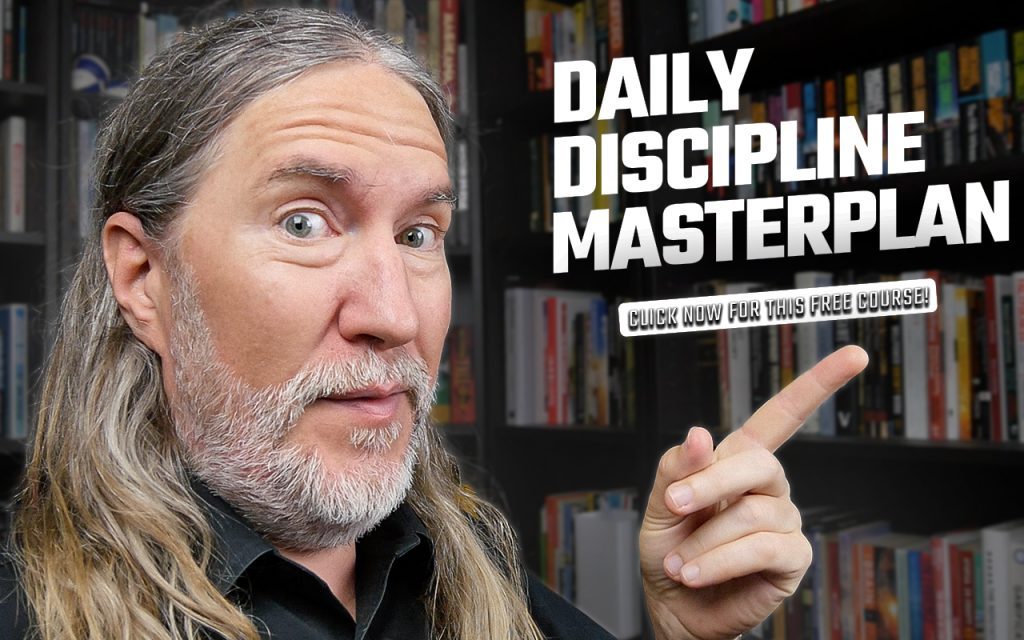I spent years of my life seeking peace, only to fail.
I tried everything:
Meditation. Booze. Therapy. Drugs. More meditation…
I failed because I did not know one simple tactic.
Of course, there’s more than one approach when you’re seeking inner peace, and I’ll share a bunch with you.
But my success ultimately came down to just one thing.
It’s a tool that is useful again and again whenever “monkey mind” takes over.
Or when life happens.
Are you ready for a masterclass in seeking peace of mind and actually getting it?
If so, let’s dive in!
What Exactly Does Seeking Peace Mean?
Homework.
Probably not what you were looking for.
But the pat answers out there on the Internet fail you because seeking peace of mind is nuanced.
You have to define it.
This fact is so important because peace for me might be something completely different for you.
And the old golden rule that we should treat others as we would like to be treated is largely BS.
In fact, it’s cliches like the golden rule that make the world so hazardous.
Let me explain.
Hypothetical Consent Ruins Everything
See, many years ago I wrote my dissertation on friendship.
And in this project, I discovered something weird about how people engage with one another.
They often assume that because someone is their friend, they can act in particular ways and say whatever is on their mind.
This is “hypothetical consent” because how often do we actually ask our friends if we can just let it all hang out and “just be ourselves”?
I raise this point because we don’t treat others the way we would like to be treated. We act the way we act in the moment, and it’s rarely out of anyone’s interest other than our own.
So the number one way to start seeking peace and actually finding it is to:
- Define what you mean by peace
- Analyze where you might be assuming consent you don’t have
- Start asking for more consent in advance
- Treat others the way they want to be treated, not the way you do
Simple, right?
It gets even better.
Karma Yoga
No matter how could you get at creating greater peace because you start checking in with people more, you can’t actually control the world.
In fact, Nietzsche once said that it would be easier to change the entire universe than to change one person.
And we know from existential physics and how leading physicists frame the problem of free will, that you’re going to have a hard time changing even yourself.
However, I believe it is possible for you to change yourself. It was the crux of my TEDx Talk based on lessons I learned in Happiness Beyond Thought:
But even if you manage to change yourself, you simply cannot anticipate what will happen after you do.
And for this reason, it’s important to practice letting go of the outcome.
This practice is sometimes called “karma yoga.”
Basically, it means doing things for others without any expectation of return.
I extend it further to mean not expecting any particular outcome.
And it’s very peaceful because you just do and observe without needing anything to be any particular way.
The Number One Way To Find Inner Peace
And that’s the secret:
Let go of the need to be in control.
The fact of the matter is that the world is neither peaceful, nor is it not peaceful. It is a mix of both.
All happening at once. Beyond the reach of anyone’s ability to control it.
So why does the individual ego get bent out of shape many times each and every day?
I don’t think anyone knows.
But you can use mindfulness to study how your mind ticks and gain distance from the process. One simple way to this involves self development questions. Using them is a simple but effective process of questioning the thoughts that arise.
And once you apply the questions and learn more about the source of your unrest, you can think kind thoughts instead. You might even be able to experience nondual awareness.
So now that you know the big picture, let’s look at some of the granular details of how you can dig deeper into your mind and find lasting peace.
One: Explore Your History Of Unrest
After I wrote The Victorious Mind, the most interesting thing happened:
Someone emailed and said he wished I would have said more about my parents.
I told him that I completely downplayed my admittedly horrible childhood in the book because I realized that it was simply not their fault.
I mean, if you’re going to recognize that free will doesn’t exist, then how could it be their fault? Even before I started writing the book, I’d already forgiven them and it just made no sense to get into the gruesome details in public.
But that doesn’t mean I didn’t get into them privately.
Quite the opposite. In fact, I recommend doing many biographical exercises to help yourself get to the core of your trauma.
I’m not suggesting that you share any of the material with anyone else. But to grow as a person, it helps tremendously to know what’s in your mind and memory.
To do this, you can either journal randomly, just letting any memory come to mind. Or you can journal your memories strategically.
My preferred exercise is to start with a year and “mind dump” everything I can think about during that time period on to the page. Or I will pick a grade in school and work that way.
The stuff that comes up is very useful to work with in combination with a letting go technique.
Two: Meditate For Peace
Now that you’ve bumped into this page, you can think about whether or not you have the free will to do whatever happens next.
I suggest that whatever you do, you use meditations specifically designed to bring about feelings of peace.
Now, meditation is something many people struggle to do. They either can’t find the time or they find the act itself boring.
There are many alternatives that can lead to similar outcomes, such as walking, singing, certain kinds of sports, or even volunteering.
While engaged in those activities, see if you can get yourself to reflect on your inner state. Are you thinking about the future? The past? Just generally where is your mind while engaged in these activities?
Often, the answers will surprise you. And they will suggest ways to bring yourself back to the present moment, which is the only place peace can actually exist.
Three: Learn To Switch Into Your Body
Right or wrong, I’m a pretty intellectual guy. My mind often motors on about all kinds of topics. Sometimes it’s exhilarating. Other times it’s exhausting.
Fortunately, I have learned over the years to distance myself from my mind and live more in my body.
The things that have helped me experience life as a peaceful, physical state the most are:
- Progressive muscle exercises
- Breathing exercises
- Getting out in nature
- Positive meditation routines
- Personal mantras
Learning to stretch and breathe took time and discipline. But now I love doing both and can use them to find peace almost instantly.
The best part?
All you need is the ground, a mat (if you like) and your body.
Four: Invent Purpose Where There Is None
A huge part of the crisis our species is undergoing is how our computers make it harder and harder to remain ignorant of data.
Young people all know that the sun is going to burn out one day and the Internet connects us to the best and worst of humanity at scale while we all wait for the inevitable.
It’s easy to find yourself bummed out by it all. Frankly, I tried to get myself to be religious, but all that stuff is a bummer too. I mean, why talk to entities that don’t talk back? If I’m going to do that, I’d rather use Chat GTP. At least it answers.
Inventing purpose can be difficult. But the fastest and easiest way is to help others.
In just about every community, you can find some way to connect with other people by volunteering, changing jobs that align more closely with your values, or donating to the work of someone online who you’d like to see doing better.
The trick is to “know thyself.”
For example, I once volunteered for a charity. Everything started off well, but I soon found that the group was overtly political. Although I still think many of their initiatives are great, constant focus on politics was not great for me. So I invented another way to contribute that had a purpose I could align with.
In some sense, this approach of making an initiative with meaning for yourself is the meaning of the phrase, “be the change you want to see in the world.”
The Peace You Seek Is Here Right Now
Ultimately, you face a paradox.
There’s nothing you can do to change the world. It is always already changing at all times, and many of us still think of Heraclitus and his famous dictum that you can’t step in the same river twice.
By the same token, you experience the illusion of free will. It’s an illusion stimulated even further by the fact that acts of will most certainly exist. You can will your eyes to stay closed for an indefinite period of time. You can say “yes” instead of “no” to suggestions you find on a blog and at least start to build a set of new habits.
But in order to experience the so-called “power of now” consistently, you have to train your brain to see the now and stick with it.
And for that, meditation that improves your working memory is probably the key.
It’s what has helped me the most and the core focus of my work.
Speaking of which, feel free to grab this free course on engaging in more positive acts of will:
It will help you find more peace by designing your day, journaling more consistently and taking care of your physical experience.
Although I can’t blame myself, I waited far too long to start using the technique I share in this program to stop seeking peace and finally start living it.
In the present moment, which is the only time it matters.
Yes, I know that it’s counterintuitive to try something new while completely releasing the need to know the outcome.
But it’s ancient wisdom that has always worked, even if we don’t know why so many people reject this simple wisdom.
All I know is that I rejected it for far too long, but you don’t have to do the same. You can say yes and start to make a change.
So what do you say? Are you also ready to stop seeking inner peace that lasts and just start doing the things that will help you experience and make it last?


